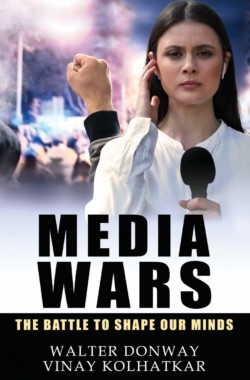Dull and Deadly
We all knew them as kids: the ones whose homework was always done; who raised their hands; the teachers’ pets, student council, honor society, and prom committee; the valedictorians who gave the graduation speeches as their parents beamed. They went on to the best universities and graduate schools, shining exemplars of American meritocracy, and made their fateful decision: to enter public service. Or, to put that decision in the less flattering but more accurate language of the bathroom graffiti artists, beer bongers, and back seat gropers: the goody two shoes decided they wanted their asses kissed while they told the rest of us what to do.
Power, as noted by Lord Acton, corrupts; the decision to pursue it entails an offer of one’s soul in exchange. Perdition is not, however, the worst punishment that befalls the power seeker. Rather, if the aspirant was not deadly dull before the decision, which most of them are, he or she is assured that tragic fate afterwards. It varies from power seeker to power seeker, but sooner or later the sycophantic hordes, relentless self-absorption and self-promotion, and never-ending calculations of interest and tactical advantage drive out all vestiges of personality, originality, and individuality.
Nowadays, the mountain of manure that is our politics and governance turns those who achieve the summit into public bromides. Quick, name something memorable said by any president after John F. Kennedy, with the exception of Ronald Reagan (“I did not have sex with that woman” doesn’t count). The best quote from Lyndon Johnson, power seeker extraordinaire? “…I shall not seek, and I will not accept, the nomination of my party for another term as your President…” Nixon, another unbridled power seeker? “Therefore, I shall resign the Presidency effective at noon tomorrow.” Gerald Ford and Jimmy Carter? Their nebulas of emissions have drifted far into space, no longer visible through even the most powerful telescope, preserved only in their Presidential libraries and seldom-searched internet pages.
George H.W. Bush is remembered for a promise he didn’t keep: “Read my lips, no new taxes.” At least he’s remembered for saying something. A few may recall the phrase “Axis of evil,” but other than that, most of us would be hard-pressed to cite anything his son said. There was Mission Accomplished, but that was a sign, and the reason it is remembered is because in retrospect, the mission was clearly not accomplished.
In the media and academia, all Democratic presidents since Woodrow Wilson are brilliant. Bill Clinton, although he never won even 50 percent of the popular vote and stood trial for impeachment, is supposedly a brilliant politician. President Obama gave one good speech at the 2004 Democratic Convention and was tagged as a brilliant speaker. He has since demonstrated a pathological dependency on the teleprompter, and unlike reading Kennedy’s or Reagan’s speeches, reading Obama’s speeches after the fact is an exercise in masochism, but the brilliant speaker tag has stuck. His oratory is strings of platitudes interspersed with attacks on his political opponents; then there’s that maddening tendency to use the word “folks,” to show us folks that he’s not just “the One,” he’s one of us.
In her lengthy (it feels like at least a century) career in public service, nobody has yet affixed “brilliant” to Hillary Clinton, unless it’s for her choice of connubial partner. She carries the boring banner borne so ably by Carter, Mondale, Dukakis, and Gore, but she may well out-dull them, especially if she is elected president. She’s been a First Lady, senator, and Secretary of State, but when challenged to name an accomplishment, her supporters draw a blank. (They also come up silent when challenged on her many scandals.) Her brief for small-scale collectivism, It Takes a Village, can be had on Amazon for 1 cent, plus shipping and handling. Like so many of what she hopes are her predecessors in the presidency, the “Memorable Quotes” file is empty. Unlike Obama, nobody claims she’s anything more than a wooden public speaker. Unlike her husband, nobody claims she’s a gifted politician. But for him, her rise in politics would have been capped at County Commissioner in some obscure Arkansas province.
Hillary is blessed with innate insipidity, which is amplified by the Democratic party’s tediously uninteresting one-word political philosophy: more. Ever more taxes, more regulations, and more spending, as ever more money and power flow to the bloated capital. Everyone’s nightmare of totalitarian government features Gestapo agents or Star Wars’ Imperial storm troopers, but the march of American totalitarianism may well be an ever-expanding, gelatinous ooze, equal parts syrup, Gorilla Glue, and a neuromuscular-blocking drug, engulfing and paralyzing everything in its path, a trail of slime in its wake. Google Roz in Monsters Inc. for the visual (copyright considerations prevent us from providing it).
Hannah Arendt popularized the phrase, “the banality of evil,” denoting Adolf Eichmann’s just “doing his job” mentality exterminating Jews. Believe it or not, there are people who enjoy designing the forms, drafting the regulations, and convening the committees that smother the rest of us, call it the evil of banality. They are the vanguard of Hillary’s legions.
The thought of eight, or even four, years, of her as president suggests the plot of a horror movie. (Don’t even think about stealing this idea; the script and treatment are already at the Writer’s Guild.) Society is divided into a small group of insipidoids who, clutching copies of It Takes a Village, run things, and the rest of the populace, the toilers, who must do as they’re told. Any toiler who falls out of line is offered a choice: swallowing a suicide pill and instant death, or suffering through endless Hillary Rodham Clinton speeches until—nature abhorring a vacuum—their minds are emptied and their heads implode. Most prisoners choose the pill.
« The Start-a-New-Business MBA U.S. and Canadian Oil Drillers Frack the OPEC Cartel »










